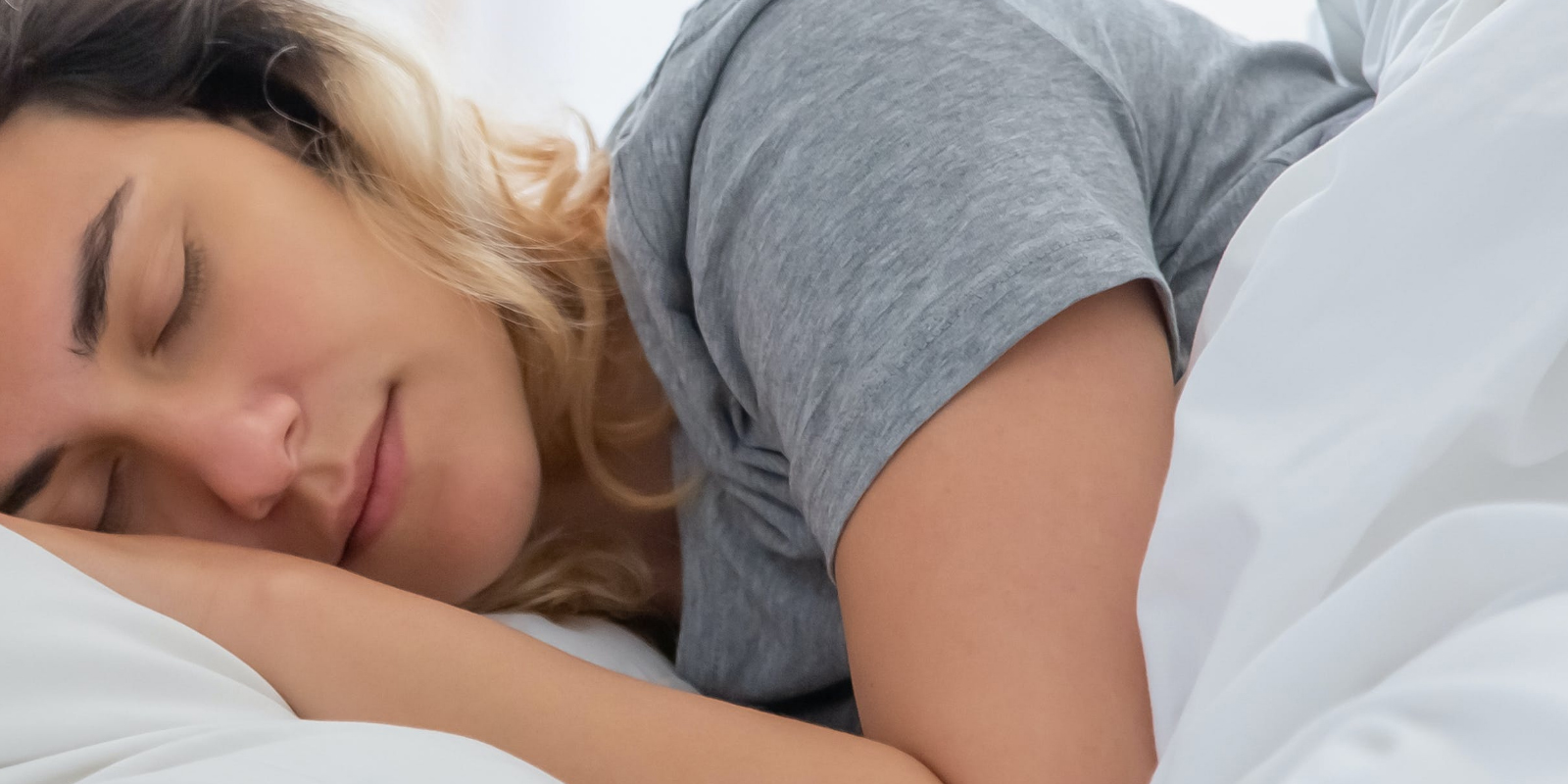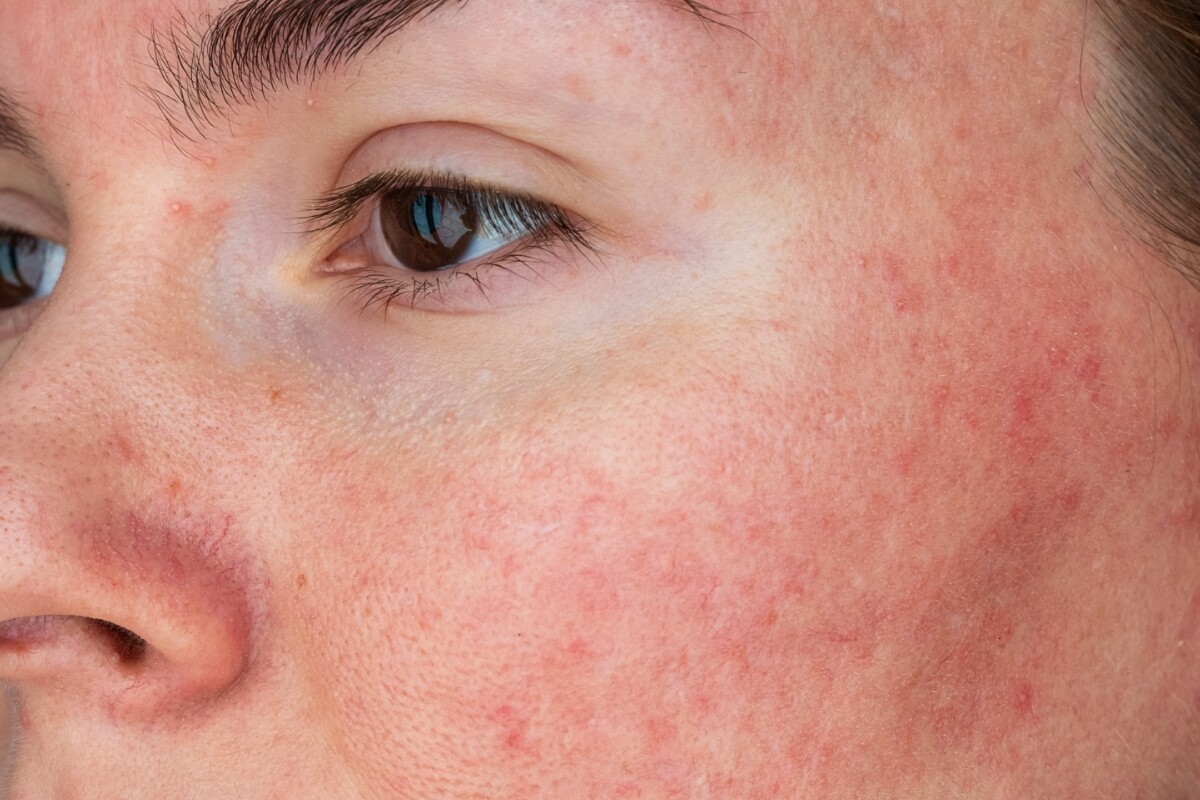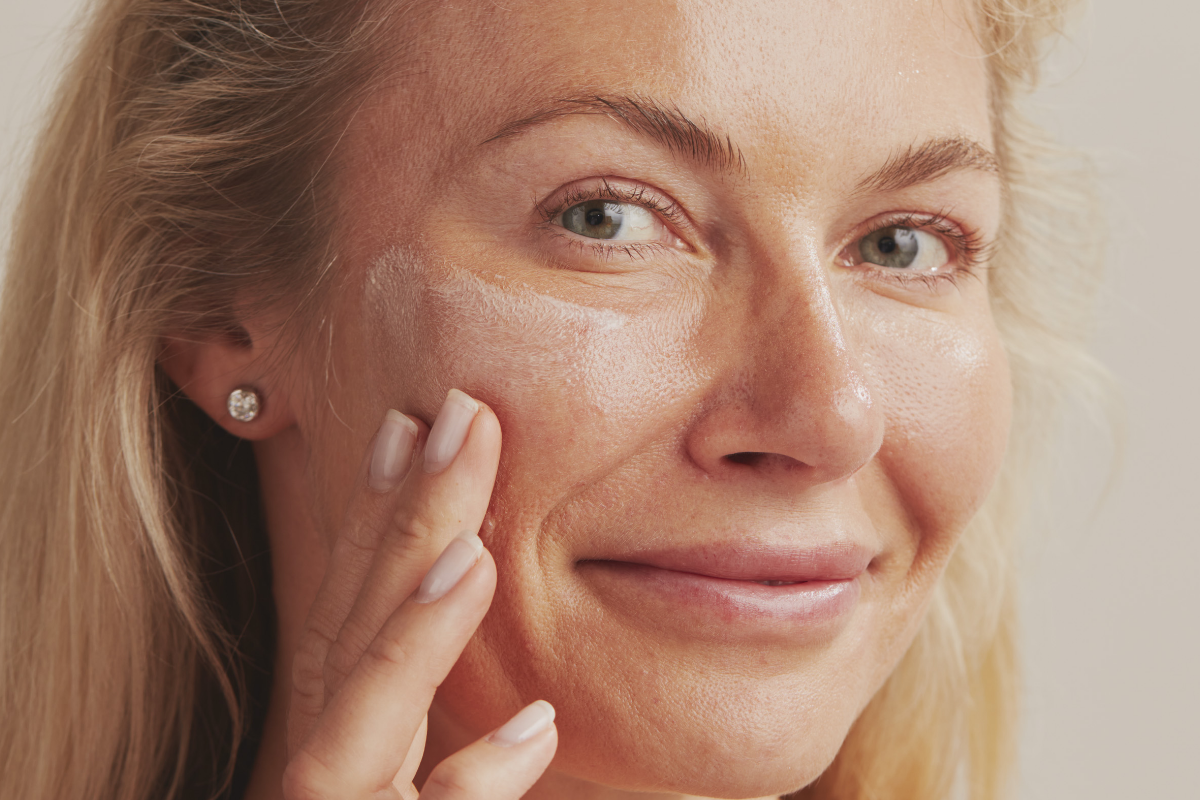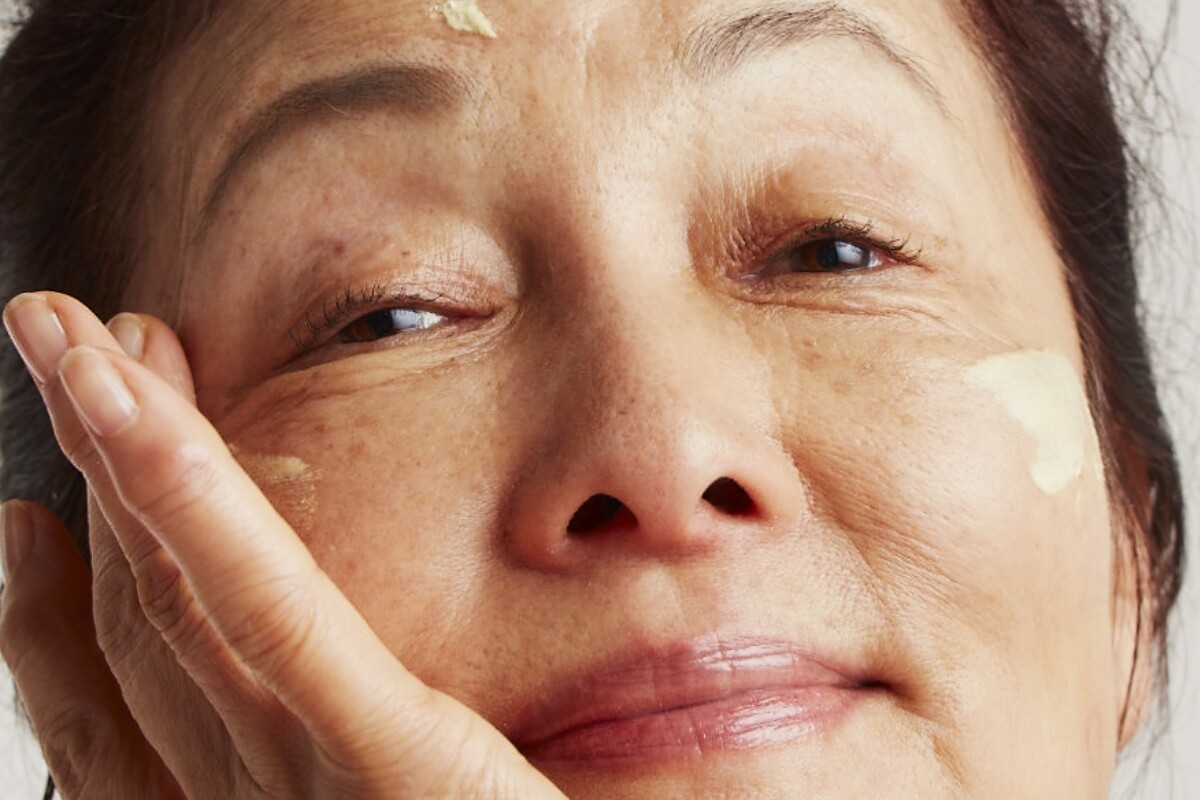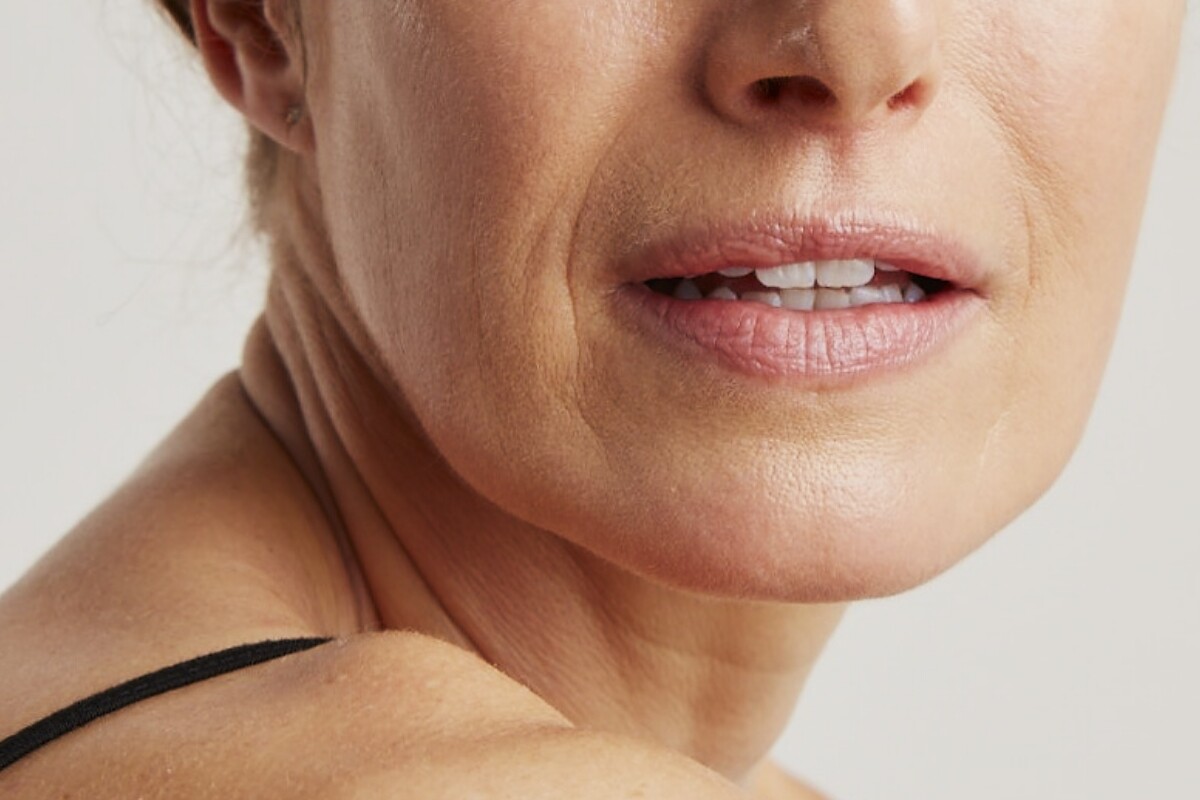There’s a fascinating link between our skin and the number of hours we sleep. We’ve all heard the term “beauty sleep,” but is there any truth to it? According to dermatologists, the answer is a resounding yes. In fact, sleep deprivation has been shown to affect both the health and the long-term look of our skin, as well as worsen skin conditions like rosacea and acne. We’ll explain why, and give you tips on how to help improve your sleep quality – for your skin, and your overall health.
How lack of sleep affects skin ageing
Sleep gives our bodies an opportunity to restore itself, right down to the cellular level. It balances our hormone levels and metabolism, playing a crucial role in our skin’s ability to repair, regenerate, and maintain itself.(1)
During deep sleep, the body also produces growth hormone, a crucial process for healthy collagen production. Collagen is responsible for maintaining skin elasticity, and studies have shown that this elasticity is one of the factors most affected by lack of sleep – eventually leading to sagging skin and the development of wrinkles.(2)
Does sleep worsen dark spots and hyperpigmentation?
Uneven skin tone, characterised by dark spots on the skin, may appear – or become worse – if you aren’t getting enough deep rest at night. By not getting enough sleep on a regular basis, the skin’s natural repair processes become disrupted, leading to increased melanin production.(3) More hyperpigmentation is then likely to appear, which in turn makes the skin look dull, ruddy and tired.
Will sleeping less trigger rosacea flare-ups?
If you’re living with rosacea, there’s strong evidence to suggest that not getting adequate sleep can trigger flare-ups. Sleep deprivation may also lead to more inflammation, worsening the redness and sensitivity that you might experience.(4)
How does sleep affect acne?
The relationship between sleep and acne is complex, because several factors are at play. Previous studies have shown that total sleep deprivation can increase pore size, and insufficient sleep can elevate your stress levels. This then triggers the release of cortisol and other hormones that could worsen acne. Additionally, sleep deprivation can compromise the skin’s ability to repair and regenerate, hindering the healing process of your skin barrier as well as blemishes that are already there.(5)
Is melasma affected by sleep?
Melasma, characterised by dark grey or brown patches on the face, is thought to be influenced by hormonal changes that affect the skin. As of yet, there isn’t enough evidence to say for sure, but it’s thought that sleep disturbances may disrupt your hormone balance and contribute to both oxidative stress (an imbalance between free radicals and antioxidants in the body) and dysregulated melatonin. And if your hormonal balance is disrupted, this could potentially darken the melasma patches or make them spread. (6)
Tips for healthy skin and better sleep
Are you sleeping on your sleep routine? Here are some tips that will help promote restful sleep and healthy skin.
1. Maintain a consistent sleep schedule
How much you’re meant to sleep can vary based on your age, lifestyle and individual needs, but general guidelines for a good night’s sleep should clock in at around 7-9 hours per night. Sleeping during the night, rather than the day, will also align your body with its circadian rhythm, making the quality of your sleep deeper and more restorative. (7)
2. Create a relaxing bedtime routine
A peaceful wind-down routine – also known as having good sleep hygiene – can improve your sleep’s quality and quantity. It helps to signal to your body that it’s time to rest, shift focus from stimulating tasks like TV, TikTok and exercise, and lower stress or anxiety. (8)
3. Invest in a quality skincare routine that’s personalised to your skin’s needs
Not everyone can have a consistent, nightly sleep ritual. If you can’t sleep more than you already do, tailor your routine so it specifically targets your skin’s needs and tackles your concerns – as this can help mitigate the disruption.
The easiest way to correct your skincare routine is with a personalised treatment plan from a dermatology professional. They assess your skin type and concerns, and recommend products with ingredients at the right strengths and with the right consistency to suit you. If you can’t see a dermatologist in-person, reach out to our expert team at Dermatica from your dashboard, any time. If you’re not already a subscriber, getting started is quick and easy. Just start a consultation, and our dermatology experts will create a personalised formula and treatment plan for you in minutes.
4. Stay hydrated and maintain a balanced diet
There’s a correlation between what you eat, and how well you sleep. One large study found that a lack of key nutrients like calcium, magnesium, and Vitamins A, C, E, E and K is associated with sleep problems. Because the processes of sleep and nutrition are so complex, it’s challenging to conduct research on the topic – but one thing is clear. On the whole, you need to get adequate nutrition without overconsuming unhealthy foods to make sure your diet isn’t disturbing a long night’s slumber.(9)
If you’re having trouble getting enough rest, and you think this may be affecting your skin, we can help. Our dermatology experts can assess your skin during a quick online consultation, and create a personalised formula and treatment plan, with powerful active ingredients that specifically suit your skin’s needs. Start a free consultation today to find out more. Or if you’re already a subscriber, go to your dashboard to ask your dermatology team a question at any time.
References:
1. Carroll JE, Prather AA. Sleep and Biological Aging: A Short Review. Current Opinion in Endocrine and Metabolic Research. 2021 Apr;
2. Jang SI, Lee M, Han J, Kim J, Kim AR, An JS, et al. A study of skin characteristics with long-term sleep restriction in Korean women in their 40s. Skin research and technology: official journal of International Society for Bioengineering and the Skin (ISBS) [and] International Society for Digital Imaging of Skin (ISDIS) [and] International Society for Skin Imaging (ISSI) [Internet]. 2020 Mar 1 [cited 2022 Jul 22];26(2):193–9. Available from: https://pubmed.ncbi.nlm.nih.gov/31692145/
3. How Sleep Can Affect The Skin And Body – James Christian New York’s Injectable Expert [Internet]. 2023 [cited 2024 Jan 30]. Available from: https://jameschristiancosmetics.com/how-sleep-can-affect-the-skin-and-body
4. Wang Z, Xie H, Gong Y, Ouyang Y, Deng F, Tang Y, et al. Relationship between rosacea and sleep. The Journal of Dermatology [Internet]. 2020 Jun 1 [cited 2022 Jan 1];47(6):592–600. Available from: https://pubmed.ncbi.nlm.nih.gov/32291809/
5. Schrom, Ahsanuddin, Baechtold, Tripathi, Ramser, Baron. Acne Severity and Sleep Quality in Adults. Clocks & Sleep. 2019 Dec 6;1(4):510–6.
6. Espósito ACC, Cassiano DP, da Silva CN, Lima PB, Dias JAF, Hassun K, et al. Update on Melasma—Part I: Pathogenesis. Dermatology and Therapy. 2022 Jul 29;12(9):1967–88.
7. Sujana Reddy, Sandeep Sharma, Reddy V. Physiology, Circadian Rhythm [Internet]. Nih.gov. StatPearls Publishing; 2018. Available from: https://www.ncbi.nlm.nih.gov/books/NBK519507/
8. Irish LA, Kline CE, Gunn HE, Buysse DJ, Hall MH. The role of sleep hygiene in promoting public health: A review of empirical evidence. Sleep Medicine Reviews [Internet]. 2015 Aug;22(1):23–36. Available from: https://www.ncbi.nlm.nih.gov/pmc/articles/PMC4400203/
9. Ikonte C, Mun J, Reider C, Grant R, Mitmesser S. Micronutrient Inadequacy in Short Sleep: Analysis of the NHANES 2005–2016. Nutrients. 2019 Oct 1;11(10):2335.
Ash Sharma
Dr Ashwin Sharma is a medical doctor and writer with a particular interest in health technology, artificial intelligence and medical weight loss. He completed his training at the University of Leicester and Imperial College London, and has since been exploring the intersections of medicine, technology, and communication.

